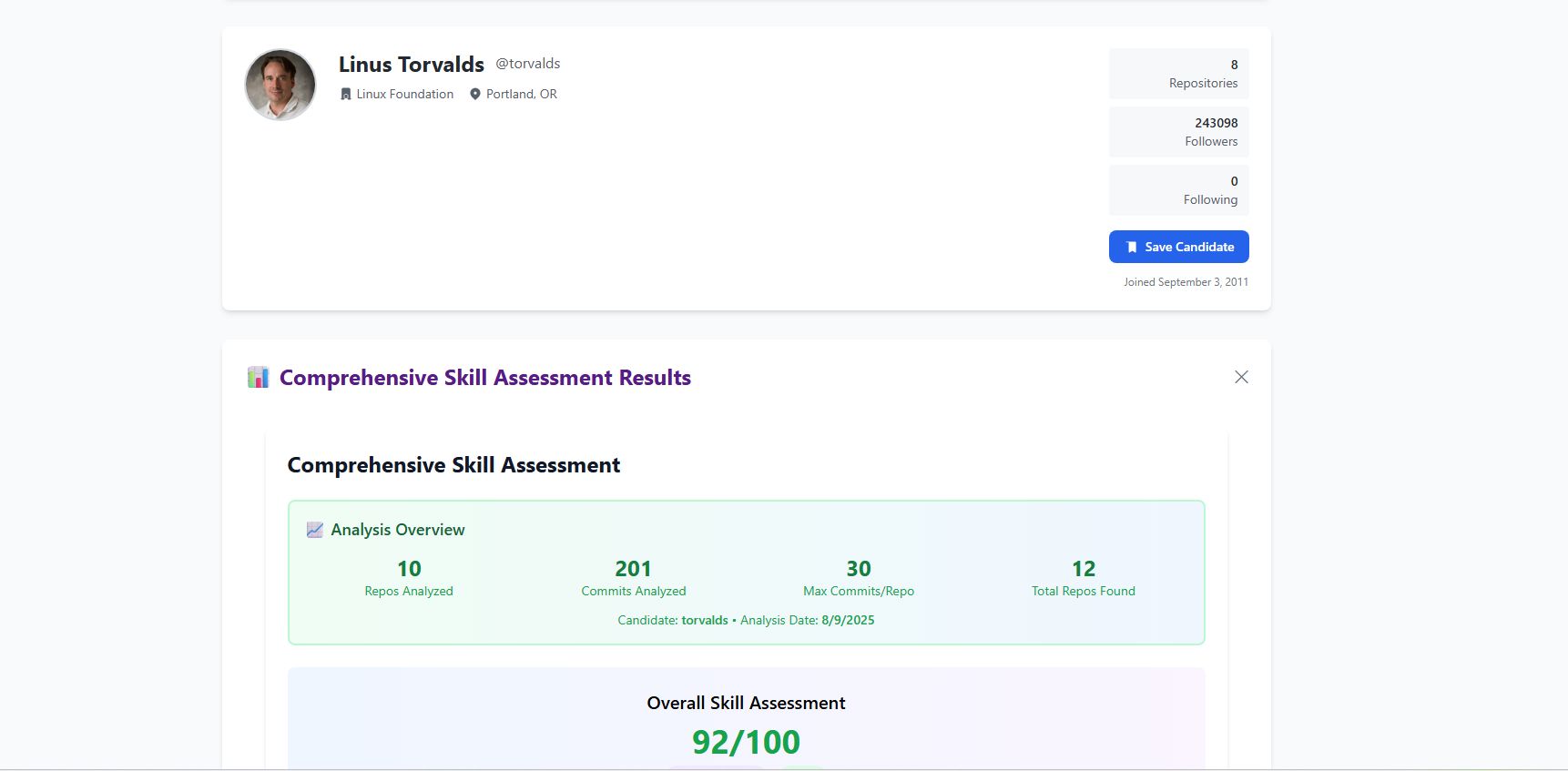Imagine you’re a recruiter. You open a GitHub profile, run it through an assessment tool, and see results like this:
- Overall Skill Assessment: 92/100 (Expert Level)
- Code Quality: 95/100
- Problem Solving: 95/100
- Algorithmic Thinking: 90/100
Sounds like a strong hire, right?
The “random developer” in the screenshot above is Linus Torvalds — yes, the creator of Linux and Git. Which raises an interesting question: how would you assess GitHub quality if you didn’t already know who you were looking at?
Should Recruiters Check a Candidate’s GitHub?
Yes — but only if the candidate puts it on their resume or LinkedIn. Otherwise, you risk:
- Reviewing an account that doesn’t belong to them.
- Judging them on abandoned or outdated repos.
- Missing significant private work you can’t access.
If they’ve shared it, then definitely yes — GitHub can reveal far more than a resume ever could.
The Recruiter’s Challenge
Here’s the hard part: most recruiters aren’t senior engineers. Even if you can open the code and scroll through files, it’s tough to tell:
- How much of the code they actually wrote.
- Whether they were leading the development or just following instructions.
- If they were orchestrating the work like a conductor — or pasting in whatever an AI tool suggested.
GitHub is designed for developers, not recruiters. Without deep technical experience, reviewing it can feel like staring at a schematic without knowing which wires matter.
What to Look For
When you can review GitHub meaningfully, focus on:
- Algorithmic Thinking – Do they approach problems logically and efficiently?
- Code Quality – Is it readable, maintainable, and clean?
- Testing Practices – Are there meaningful tests, not just empty shells?
- Documentation – Clear README, useful comments, setup instructions?
- Project Organization – Are files and dependencies structured well?
- Problem Solving – Do they show creativity in their solutions?
Also remember: a candidate’s best work might be in private repos you can’t see. Public GitHub is only part of the picture.
The Game Changer: gitcruiter.com
This is where tools like gitcruiter.com change the game for recruiters. Instead of manually clicking through commits and guessing at quality, Gitcruiter allows you to:
- Deep dive into a single repo and view all commits or just a filtered subset.
- Separate the candidate’s own work from contributions by others.
- Include their work in other people’s repositories — where collaboration skills shine.
- Get a graded, recruiter-friendly report based on a clear assessment guide.
The output is more than just a code dump — it’s a structured breakdown like the Torvalds example above, with scores, summaries, and improvement areas. It gives recruiters without a programming background the same evaluation power as a senior engineer, opening new horizons for pre‑screening and technical assessment.
So, would you have hired Torvalds?
